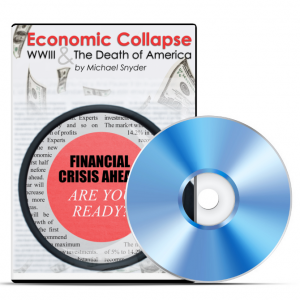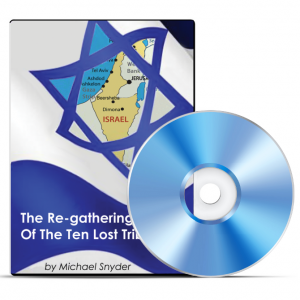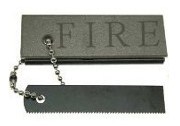|
|

Guest Post, Lee Flynn
When you are wanting to learn how to survive in the wild, there are some television shows that can help to teach you various survival techniques. By watching these types of shows you can gain a general understanding of what it could take mentally and physically should you find yourself in a survival-type situation. They teach you all sorts of skills, from fire-building to which is best to use, 9mm ammo or buck shot. Additionally, the shows provide information about food survival skills and food storage. The television shows feature rugged hosts including Bear Grylls, Cody Lundin, and Joseph Teti. The skills you learn are basic skills for surviving and different scenarios are played out for you to observe throughout the shows.
On a few of these shows there are disclaimers informing the viewers of the fact that some situations are set up by the producers to the hosts to further inform the viewer of a handy survival tactic. This list contains some of the better and more informative of the survival shows.
Survivorman
The creators of the hit (Read more....) […]

Guest Post Lee Flynn
The polar vortex has got everyone talking about cold weather. But while we are exclaiming about the ridiculously low temperatures and naming things “polar vortex,” there are plenty of people who are right in the thick of some of the most extreme weather the world has seen in decades. And though there have been some fatalities as a result of the cold weather, there is a far more common occurrence of people being stranded in their vehicles for days at a time. In these sorts of situations it is difficult to survive, but if you are properly prepared, it can be done. Here are some of the most important things for you to keep in your car in case of emergencies this winter.
Food
If you are going to be stuck in your car for 12 or more hours, there is one thing for which you will be grateful above all else: food. And even if it is not winter, storing emergency food should be a top priority for any car owner. Remember to store things that can last for a long (Read more....) […]
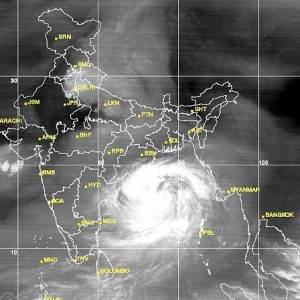 by Stacey Thompson by Stacey Thompson
Hurricanes and typhoons are very powerful storm systems that pack powerful winds and rain that have the capability of causing massive destruction to property and loss of life. For us, two hurricanes have left their mark on our collective memories, hurricanes Katrina and Sandy
Whichever side of the fence you are on about global warming, it is an undeniable fact that the more erratic and forceful weather patterns are connected to this phenomenon. The ferocity and frequency of these destructive events are increasing, and thus, more people are affected, their property and lives at the mercy of nature’s wrath.
If anything, physical evacuation from the affected area is probably the safest thing you can do, provided you have both the luxury of time ahead of the actual event, the proper logistics, and a place to stay away from the potential calamity. For those that do not have such an option, or insist on staying in their homes, it is imperative that the proper preparations (Read more....) […]
 It is hard to be able to know when disaster will strike, but you can prepare you and your family for the event of a natural disaster. There are a lot of things that can happen, and if you are prepared for these types of events, you will be able to survive even the worst events. It is hard to be able to know when disaster will strike, but you can prepare you and your family for the event of a natural disaster. There are a lot of things that can happen, and if you are prepared for these types of events, you will be able to survive even the worst events.
You can never be prepared enough, and there are a lot of things that you will need to get by should services in your community be cut off due to a natural disaster. Having an emergency plan, and natural disaster checklist of the most important things that you will need in the case of an emergency, will help you to be prepared for one of these events.
Developing Your Emergency Plan for Natural Disasters
There are a lot of types of emergency situations that can happen, and having a plan of action will help you to be prepared for what may happen in the event of an emergency. This is even truer for natural disasters that can happen at any time.
There are a lot of components to a well-planned emergency plan, you may want to use a checklist and include some of these important items:
· First aid kit
· Medications
· Emergency Generator
· Flash Lights
· (Read more....) […]
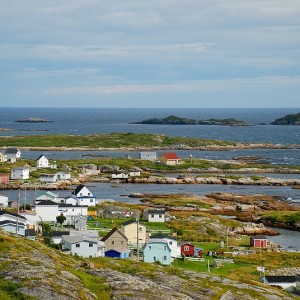 Authored By J Vanne. Authored By J Vanne.
The Maritime Provinces – Newfoundland, New Brunswick, Prince Edward Island and Nova Scotia
The maritime provinces – Newfoundland, Prince Edward Island, New Brunswick and Nova Scotia – are generally regarded as a region that has chronic unemployment , and in one sense, is almost “the land that time forgot,” in that much of the economic development that has gone on in Canada moved west for various reasons. However, where there are issues like this, there may be opportunity for you. This article will explore those possible opportunities.
Newfoundland
If you consider this province, first attend the Newfoundland 101 class: the province may be pronounced by an emphasis on either the first or last syllable – never the middle one. Newfoundland joined Canada only in 1949, after some brief toying with the possibility of joining the US. One key economic item is the Hibernia oil field off the coast, which is a plus for economic stability, but generally Newfoundland is a (Read more....) […]
 Authored By J Vanne Authored By J Vanne
As noted in the previous article, the goal of examining different Canadian regions for you is two-fold: a.) to look at regions that might be good locales in a slow, grinding, on-going economic downturn, and b.) examine areas the might be suitable in a more serious societal and/or economic breakdown (the so-called “zombie apocalypse”). The goal is to provide a range of options for those who think we will see “merely” continued socialist economic malaise, all the way through to examining locations that might fare better in a much more serious apocalypse.
The Canadian Rockies, which are on the western edge of Alberta, aren’t exactly “prairie,” but I am putting these three “prairie” provinces together for the sake of brevity. There is a very clear bifurcation in Canadian minds between western and eastern Canada. Westerners – of which I consider myself one – still have a residual distaste for easterners in that back in the 1980s (and earlier) Ontario – which basically ran Canada until recently (and largely still does), essentially expropriated (Read more....) […]
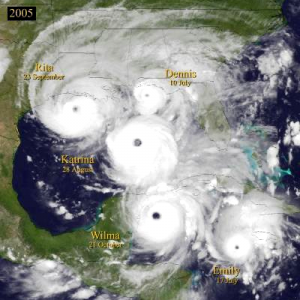 Disaster preparedness is something that all families should talk about regularly. Whether the threat is fire, flood, invasion by an enemy force or any other kind of disaster, being prepared can save the lives of your family members. It also helps to reduce fear and panic when something does happen, enabling your family to respond with intelligence and efficiency. Disaster preparedness is something that all families should talk about regularly. Whether the threat is fire, flood, invasion by an enemy force or any other kind of disaster, being prepared can save the lives of your family members. It also helps to reduce fear and panic when something does happen, enabling your family to respond with intelligence and efficiency.
Preparing Your Children
Disasters can be particularly traumatic for children, many of whom are already beginning to feel that much of the world is outside of their control. When disaster strikes, and it becomes clear that parents cannot always prevent things like fires, floods and earthquakes from affecting the family, they can become especially vulnerable.
That is why it’s particularly important to talk with your children about the possibility of a disaster. Explain to them that a disaster may cause damage or even hurt people. Talk to them about what might happen during an emergency, such as phone and electrical service being shut off. Also, make certain they are aware that emergency personnel are working to help them at all times during a disaster. Help them to understand that firefighters, paramedics and police are (Read more....) […]
|
|








